The most common Honda Pioneer 700 problems are transmission problems, starting issues, increased fuel consumption, differential lock problems, cold engine issues, PTO problems, steering issues, electrical problems, exhaust problems, ignition switch problems, and heating issues.
Here we discuss the Pioneer 700 problems in detail with their easy solutions.
12 Honda Pioneer 700 problems and Solutions
Now we will discuss the Honda Pioneer 700 issues, which are the same as the Honda Pioneer 520 issues.
1. Transmission Problems
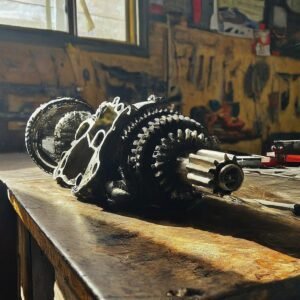
One of the most reported issues with the Honda Pioneer 700 is delayed shifting. This often manifests as a lag when the vehicle shifts gears, which can be frustrating and potentially hazardous. Another common problem is the transmission slipping out of gear, which can disrupt your driving experience.
According to consumer feedback, these issues usually stem from a combination of factors, including worn-out clutch plates, low transmission fluid levels, and software glitches in the transmission control module (TCM). Understanding these causes is the first step toward resolving them.
Solutions
Let’s look at some effective solutions for these transmission issues:
- Regular Maintenance: Ensuring that your Honda Pioneer 700 undergoes regular maintenance can prevent many transmission problems. This includes periodic checks of transmission fluid levels and replacing them as needed.
- Software Updates: Keeping your transmission control module updated with the latest software can resolve issues related to delayed shifting. Contact your Honda dealer to see if there are any updates available.
- Clutch Plate Replacement: Worn-out clutch plates can cause the transmission to slip out of gear. If you notice this issue, it might be time to replace the clutch plates. While this can be a complex process, professional mechanics can handle it efficiently.
Continue your journey by reading the top speed of the Honda Pioneer 700.
2. Honda Pioneer 700 Starting Problems
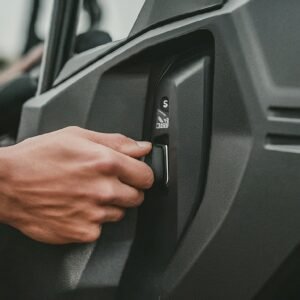
Here are some issues due to which your UTV won’t start. Also explore the best offroad vehicles.
1. Battery Issues
One of the most common causes of starting problems in Honda Pioneer 700 is a faulty or discharged battery. If you turn the key and nothing happens, or if you hear a clicking sound, it’s likely that your battery is the problem.
Solution:
Make sure the battery connections are clean and tight. If you find any corrosion or loose connections, clean them with a battery cleaner and tighten them securely. If the battery is discharged, try jump-starting the vehicle using jumper cables and a working battery. It may be time to replace the battery if the problem persists.
2. Fuel Issues
Another common starting problem in the Honda Pioneer 700 is related to fuel. If your vehicle is not getting enough fuel or if the fuel is contaminated, it can prevent the engine from starting.
Solution:
Check the fuel level in your vehicle and make sure it is sufficient. If the fuel level is low, fill up the tank with fresh fuel. If you suspect that the fuel may be contaminated, drain the fuel tank and replace it with clean fuel. Additionally, check the fuel filter for any clogs or debris. If necessary, replace the fuel filter.
3. Ignition System Issues
The ignition system plays a crucial role in starting your Honda Pioneer 700. If there are issues with the ignition switch, starter motor, or spark plugs, it can result in starting problems.
Solution:
Check the ignition switch to ensure it is functioning properly. Consider replacing it if you notice any signs of wear or damage. Inspect the starter motor for any signs of malfunction, such as grinding noises or excessive heat. If necessary, have the starter motor repaired or replaced. Additionally, check the spark plugs for any signs of wear or fouling. Clean or replace the spark plugs as needed.=
4. Electrical System Issues
One of the most frequently reported issues with the Honda Pioneer 700 electrical system is a dead or weak battery. This can be caused by several factors, including leaving the lights on, a faulty charging system, or simply an old battery. Another common problem is blown fuses, which can affect various components like lights and ignition.
Diagnosing Electrical Issues
When diagnosing electrical problems, the first step is to check the battery. Use a multimeter to measure the voltage; a fully charged battery should read around 12.6 volts.
If the voltage is low, try charging the battery and testing again. If it doesn’t hold a charge, it might be time for a replacement.
If the battery is fine, the next step is to inspect the fuses. The fuse box is usually located under the hood. Check for any blown fuses and replace them if necessary. Remember, using the correct fuse rating is crucial to avoid further issues.
3. Power Loss Problems

One of the most frequent causes of power loss in the Honda Pioneer 700 is a clogged air filter. A dirty or clogged air filter restricts airflow to the engine, reducing its ability to perform efficiently. Regular maintenance and cleaning of the air filter can help prevent this issue.
Another potential cause is a faulty fuel pump. The fuel pump is crucial in delivering fuel to the engine. If it’s not working correctly, the engine may not receive enough fuel, leading to power loss. Replacing a malfunctioning fuel pump can resolve this problem.
Diagnosing and Fixing the Problem
To diagnose power loss, start by inspecting the air filter. If it’s dirty, clean it or replace it if necessary. Next, check the fuel pump to ensure it’s operating correctly. If you suspect it’s faulty, replace it with a new one.
Additionally, inspect the spark plugs. Worn or fouled spark plugs can cause misfires, leading to power loss. Replacing spark plugs at regular intervals can help maintain engine performance. By following these steps you can easily get rid from the Honda Pioneer 700 power loss challenges.
You can also explore the issues of the Honda Pioneer 500.
4. Increased fuel consumption
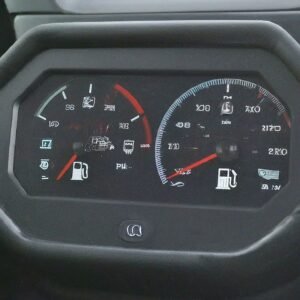
Here are a few Honda Pioneer 700 issues due to it begins to increase fuel consumption. Also explore the offroading.
- Dirty Air Filter: A clogged or dirty air filter can restrict airflow to the engine, causing it to work harder and use more fuel. Regular maintenance and cleaning of the air filter can help mitigate this problem.
- Poor Fuel Quality: Using low-quality fuel can affect engine performance and lead to higher fuel consumption. Ensure you are using the recommended fuel type for your Honda Pioneer 700.
- Tire Pressure: Incorrect tire pressure can increase rolling resistance, making the engine work harder. Always check and maintain the recommended tire pressure levels.
Solutions to Improve Fuel Efficiency
- Regular Maintenance: Keeping up with regular maintenance schedules, such as oil changes and air filter replacements, can significantly improve fuel efficiency.
- Proper Driving Techniques: Avoid aggressive driving behaviors like rapid acceleration and hard braking, which can increase fuel consumption. Smooth and steady driving is more fuel-efficient.
- Engine Tune-Up: Periodic engine tune-ups ensure that your engine is running optimally, reducing fuel consumption. This includes checking spark plugs, fuel injectors, and other engine components.
5. Honda Pioneer 700 Differential lock Issues
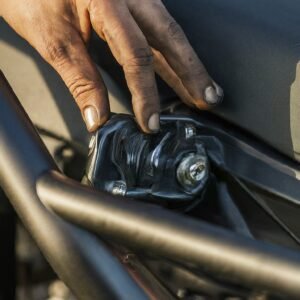
Here are some issues of Differential lock that you face with your Honda Pioneer. Also explore Honda Pioneer 700 vs 1000 .
1. Differential Lock Not Engaging
If you are experiencing difficulties in engaging the differential lock on your Honda Pioneer 700, there are a few potential causes to consider:
Solution:
- Check the differential lock cable for any signs of damage or wear. If you notice any issues, replace the cable.
- Inspect the differential lock mechanism for any obstructions or debris that may be preventing it from engaging. Clean or remove any obstacles that you find.
- Ensure that the differential lock switch is functioning properly. If necessary, replace the switch.
2. Differential Lock Engaging but Not Disengaging
If your differential lock is engaging but not disengaging, it can be frustrating and may cause unnecessary strain on your vehicle. Here are some potential solutions to this problem:
Solution:
- Check the differential lock cable for any signs of damage or wear. Replace the cable if necessary.
- Inspect the differential lock mechanism for any obstructions or debris that may be preventing it from disengaging. Clean or remove any obstacles that you find.
- Ensure that the differential lock switch is functioning properly. If needed, replace the switch.
- Verify that the differential lock actuator is working correctly. If it is faulty, consider replacing it.
3. Differential Lock Making Strange Noises
If you notice unusual noises coming from your Honda Pioneer 700’s differential lock, it may indicate an underlying problem. Here are some possible solutions:
Solution:
- Inspect the differential lock for any signs of damage or excessive wear. If you notice any issues, have a professional technician examine and repair it.
- Check the differential fluid level and quality. Low or contaminated fluid can cause noise and may require a fluid change.
- Ensure that all the components of the differential lock system are properly lubricated. Apply lubricant as needed.
6. Cold Engine Issues
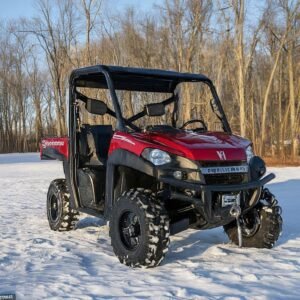
Here are a few issues due to which the engine of your Pioneer 700 is cold.
1. Difficulty Starting
One of the most common Honda Pioneer 700 problems with a cold engine is difficulty starting. When the temperature drops, the engine may struggle to turn over, resulting in a frustrating experience for the rider. If you find yourself in this situation, here are a few solutions to try:
- Check the Battery: A weak battery can make it difficult for the engine to start. Ensure that the battery is fully charged and in good condition.
- Use the Choke: The choke helps to enrich the fuel mixture, making it easier for the engine to start. Make sure to engage the choke before attempting to start the engine in cold weather.
- Warm Up the Engine: Letting the engine warm up for a few minutes before attempting to start it can help improve starting performance.
2. Rough Idling
Another issue that may arise with a cold engine is rough idling. This can be characterized by a shaky or unstable engine when it is running at idle speed. To address this problem, consider the following solutions:
- Adjust the Idle Speed: If the engine is idling too low or too high, it may result in a rough idle. Consult your owner’s manual for instructions on how to adjust the idle speed.
- Clean the Carburetor: A dirty or clogged carburetor can cause rough idling. Remove the carburetor and clean it thoroughly to ensure proper fuel flow.
- Check the Fuel System: Inspect the fuel lines and fuel filter for any blockages or damage that may be affecting the engine’s performance.
3. Poor Acceleration
In cold weather, you may notice that your Honda Pioneer 700 has poor acceleration. This can be frustrating, especially when you need that extra power to navigate challenging terrain. Here are a few solutions to improve acceleration:
- Warm Up the Engine: Allowing the engine to warm up for a few minutes before pushing it to its limits can help improve acceleration.
- Replace the Spark Plugs: Worn or fouled spark plugs can affect the engine’s performance. Replace them regularly to ensure optimal combustion.
- Check the Air Filter: A dirty air filter can restrict airflow to the engine, resulting in poor acceleration. Clean or replace the air filter as needed.
7. PTO Problems
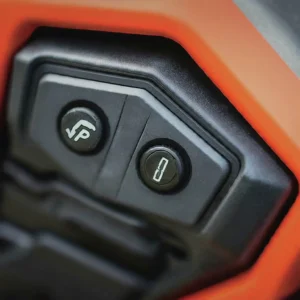
One of the most frequent issues with the Honda Pioneer 700’s PTO system is engagement failure. This can happen due to worn-out clutch plates or transmission issues.
Another common problem is overheating, which can be caused by insufficient lubrication or a clogged cooling system.
Electrical issues, such as faulty wiring or malfunctioning switches, can also disrupt the PTO operation. Recognizing these problems early can prevent further damage and costly repairs.
Solutions
To address engagement issues, first inspect the clutch plates for wear and tear. If they are damaged, replacing them should resolve the problem.
For overheating issues, check the lubrication levels and ensure that the cooling system is free from obstructions.
If you encounter electrical issues, inspect the wiring and switches for any signs of damage or corrosion. Replacing faulty components can restore the proper function of the PTO system.
Regular maintenance, including timely lubrication and system checks, can also help prevent these problems from occurring.
This problem is also occurs with the most model of ATV.
8. Steering Problems

One of the most frequent Honda Pioneer 700 problems is stiff steering, which can make it difficult to maneuver your vehicle.
This can be caused by low power steering fluid, worn-out steering components, or improper wheel alignment.
Another common issue is the steering wheel shaking or vibrating, which could be a sign of unbalanced tires or damaged suspension parts.
Effective Solutions
Addressing these steering problems can significantly improve your vehicle’s performance. For stiff steering, start by checking the power steering fluid level and topping it up if necessary.
Regularly inspect and replace worn-out steering components such as the steering rack and tie rods. Proper wheel alignment is crucial; if you notice any misalignment, have it corrected by a professional.
For steering wheel vibrations, ensure your tires are balanced and inspect the suspension for any damage. Replacing faulty parts can resolve the issue and provide a smoother driving experience.
9. Electric Problems
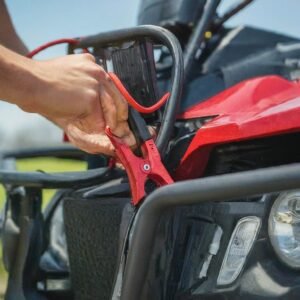
One of the most frequent issues is the battery not holding a charge. This can be due to a faulty battery, loose connections, or a malfunctioning charging system.
Another common problem is intermittent electrical failures, often caused by corrupted or damaged wiring.
Finally, some users report issues with the vehicle’s ignition system, which can prevent the engine from starting.
Solutions
To solve battery-related issues, check the battery terminals for corrosion and ensure all connections are secure. If the problem persists, it may be necessary to replace the battery. For wiring issues, inspect all electrical connections for signs of wear or damage.
Replacing damaged wires or connectors can often resolve intermittent electrical failures. If you face ignition problems, check the ignition switch and starter relay for faults. Replacing these components can restore proper function.
10. Exhaust Problems
Exhaust leaks are often caused by damaged gaskets or cracks in the exhaust manifold. Regular wear and tear can lead to these issues, mainly if you frequently use your Honda Pioneer 700 on rough terrains.
Unusual noises, such as hissing or rattling, might indicate a loose or damaged exhaust component. Additionally, a drop in engine performance can result from a clogged catalytic converter or a malfunctioning oxygen sensor.
Solutions
To address exhaust leaks, inspect the gaskets and replace any worn or damaged ones. If you find cracks in the exhaust manifold, replace the entire part. For unusual noises, check for loose components and tighten or replace them as needed.
To enhance engine performance, ensure the catalytic converter is blockage-free and the oxygen sensor functions correctly. Regular maintenance can prevent many of these problems and keep your Honda Pioneer 700 running smoothly.
11. Ignition Switch Problems
One of the most frequent issues with the Honda Pioneer 700 ignition switch is difficulty turning the key. A worn-out or damaged ignition switch can cause this.
Another common problem is a non-responsive ignition switch, where turning the key does not start the engine. This could be due to electrical issues or a faulty ignition switch.
Diagnosing the Issue
First, check the condition of the ignition switch. Look for signs of wear and tear or physical damage. Next, inspect the electrical connections. Ensure that all wires are securely connected and there are no signs of corrosion.
Using a multimeter, test the voltage to verify if the ignition switch is receiving power. If the ignition switch appears in good condition and the electrical connections are intact, the issue may lie elsewhere, such as with the starter motor or battery.
Solutions
If the ignition switch is worn out or damaged, replacing it is often the best solution. OEM replacement parts are recommended for the best compatibility and performance. For electrical issues, cleaning the connectors and ensuring a tight fit can resolve the problem.
In some cases, you may need to replace corroded or damaged wires. Regular maintenance and inspection can also prevent ignition switch problems from occurring in the first place.
12. Honda Pioneer 700 Overheating Issues
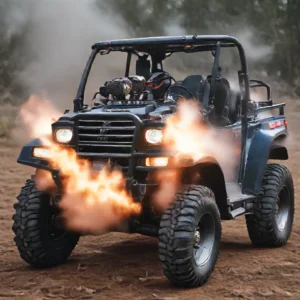
Overheating in the Honda Pioneer 700 can result from several factors. The primary cause is often an issue within the cooling system.
This might include a malfunctioning radiator fan, clogged fins, or low coolant levels. Working the machine too hard in hot weather can also contribute to overheating.
Another potential cause is a dirty air filter, which can restrict airflow and make the engine run hotter than usual. In some cases, older models might have design flaws that worsen heat problems.
Solutions
Addressing the heat problems in your Honda Pioneer 700 involves a few strategic steps. Firstly, ensure that the radiator is clean and free from debris.
Compressed air can blow out any dirt or leaves clogging the fins. Secondly, regularly check the coolant level and top it off if necessary. Using a high-quality coolant can also make a significant difference.
Inspect the radiator fan to ensure it is functioning correctly. If it’s not, it might need to be replaced. Additionally, consider upgrading to a high-performance fan for better cooling efficiency.
Replacing the air filter regularly is another simple yet effective measure to prevent overheating. Also explore the Off-Road Parks in Florida.
Conclusion:
These are the few Honda Pioneer 700 problems with their easy solutions. Now whenever you encounter any of these issues you can solve them easily by following the above guidelines.
FAQs
1. What is the top speed of the Honda Pioneer 700?
The top speed is around 45 mph.
2. How much weight can the Honda Pioneer 700 tow?
It can tow up to 1,500 pounds.
3. What is the fuel capacity of the Honda Pioneer 700?
The fuel capacity is 7.9 gallons.

